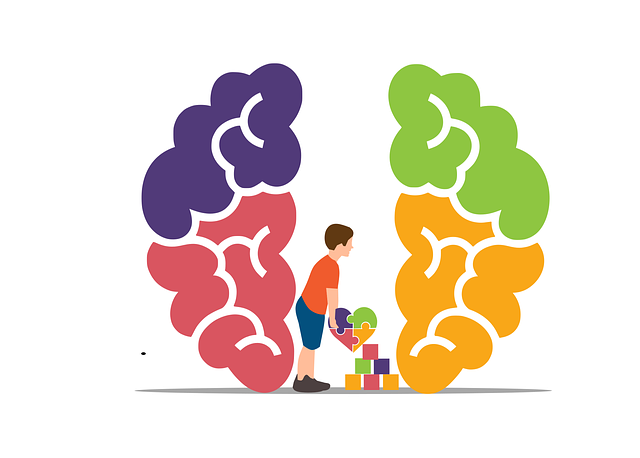Mental health advocacy, led by initiatives like Parker Parenting Skills Therapy, is a powerful tool for community well-being. By educating and empowering individuals through workshops, awareness campaigns, and crisis intervention guidance, these programs foster empathy, reduce stigma, and create supportive environments. This holistic approach equips parents with communication and coping strategies, teaching children emotional expression and resilience. Evaluating initiatives like Parker Parenting Skills Therapy is crucial to understanding their impact on mental health awareness and community dynamics.
Mental health advocacy initiatives play a pivotal role in fostering community well-being. This article delves into the multifaceted aspects of these efforts, from understanding the core principles of mental health advocacy to exploring practical strategies for effective campaigns. We highlight the crucial role of parents, as empowered through programs like Parker Parenting Skills Therapy, in supporting their children’s mental health. Furthermore, we discuss building resilient communities through collaboration and outreach, and how to measure the impact of these initiatives.
- Understanding Mental Health Advocacy: A Cornerstone for Community Well-being
- The Role of Parents: Empowering Families through Parker Parenting Skills Therapy
- Strategies for Effective Mental Health Advocacy Initiatives
- Building Resilient Communities: Collaboration and Outreach Programs
- Measuring Success: Evaluation and Impact of Mental Health Advocacy Campaigns
Understanding Mental Health Advocacy: A Cornerstone for Community Well-being

Mental health advocacy plays a pivotal role in fostering community well-being by raising awareness and challenging stigma surrounding mental illness. It’s about empowering individuals to understand, support, and advocate for their own and others’ mental health needs. At the core of this process is education—enlightening communities about mental health conditions, symptoms, and available resources. This includes initiatives like public awareness campaigns that use storytelling and personal narratives to humanize mental health struggles, making them less abstract and more relatable.
By integrating practices such as compassion cultivation and social skills training through programs like Parker Parenting Skills Therapy, advocacy goes beyond mere information dissemination. It encourages active engagement, nurturing empathy, and promoting healthy coping mechanisms. These efforts collectively contribute to creating supportive environments where individuals feel comfortable seeking help, reducing the societal barriers that often prevent people from accessing mental health services.
The Role of Parents: Empowering Families through Parker Parenting Skills Therapy

Parents play a pivotal role in mental health advocacy, and initiatives like Parker Parenting Skills Therapy are designed to empower families. This therapeutic approach focuses on teaching parents effective communication strategies, conflict resolution skills, and techniques for fostering a supportive home environment. By equipping parents with these tools, children can learn to express their emotions, build inner strength, and develop empathy – all fundamental aspects of a robust mental health foundation.
Through Parker Parenting Skills Therapy, families are encouraged to establish routines that prioritize self-care, promoting better emotional regulation in both children and parents. This holistic approach not only addresses immediate concerns but also equips families with lasting coping mechanisms to navigate life’s challenges. By fostering strong family connections and a nurturing home atmosphere, this therapy empowers individuals to cultivate resilience, enhance their overall well-being, and advocate for their mental health needs.
Strategies for Effective Mental Health Advocacy Initiatives

Mental health advocacy initiatives require a multi-faceted approach to create meaningful change. One effective strategy is to empower individuals and communities through education and skill-building workshops. For instance, programs that teach emotional intelligence and empathy-building strategies can help people recognize and support one another’s mental well-being. These initiatives foster an environment where open conversations about mental health are encouraged, reducing the stigma associated with seeking assistance.
Additionally, crisis intervention guidance plays a pivotal role in advocacy. Training community members in basic crisis management techniques, such as those offered through Parker Parenting Skills Therapy, enables prompt and effective support during mental health emergencies. By combining education, skill development, and readily accessible resources like Crisis Intervention Guidance, advocates can create a supportive network that promotes resilience and recovery for individuals facing mental health challenges.
Building Resilient Communities: Collaboration and Outreach Programs

Building resilient communities requires collaborative efforts and targeted outreach programs that cater to diverse populations. One such initiative is Parker Parenting Skills Therapy, which focuses on empowering parents with effective coping strategies and communication techniques. By offering workshops and support groups, this program strengthens family bonds and fosters a sense of community resilience.
Collaboration between mental health organizations, local governments, and healthcare providers plays a pivotal role in Crisis Intervention Guidance. These partnerships ensure that resources are accessible to all, promoting early intervention and stress management. Additionally, Healthcare Provider Cultural Competency Training equips professionals with the skills to offer empathetic care, catering to the unique needs of diverse communities. Through these initiatives, societies can build a network of support, ensuring individuals feel equipped to navigate mental health challenges within their resilient community frameworks.
Measuring Success: Evaluation and Impact of Mental Health Advocacy Campaigns

Evaluating the success of mental health advocacy initiatives is crucial to understanding their impact and inform future strategies. It involves a comprehensive analysis of various factors such as campaign reach, engagement levels, and behavioral changes among target audiences. This process often utilizes quantitative and qualitative methods, including surveys, interviews, and observation, to gather data on awareness, attitudes, and practices related to mental health. By measuring the reach of advocacy campaigns through platforms like social media or community events, researchers can assess their ability to connect with diverse populations, ensuring inclusivity in mental health discussions.
Moreover, evaluating the impact of these initiatives should extend beyond immediate changes and consider long-term effects on individuals’ lives. For instance, programs focused on parenting skills, such as those offered by Parker Parenting Skills Therapy, might aim to reduce parental stress and improve family dynamics. Through follow-up studies, researchers can assess if participants maintain improved social skills, practice mindfulness meditation regularly, or successfully implement burnout prevention strategies in their daily routines. This holistic approach ensures that advocacy efforts not only raise awareness but also lead to tangible improvements in mental well-being.
Mental health advocacy initiatives, such as those supported by evidence-based programs like Parker Parenting Skills Therapy, are essential for fostering resilient communities. By empowering families and implementing effective strategies, we can significantly improve community well-being. Collaboration and outreach programs play a crucial role in amplifying these efforts and ensuring that mental health support reaches those who need it most. Measuring the impact of these initiatives through evaluation is vital to understanding their success and making informed adjustments for ongoing improvement.














